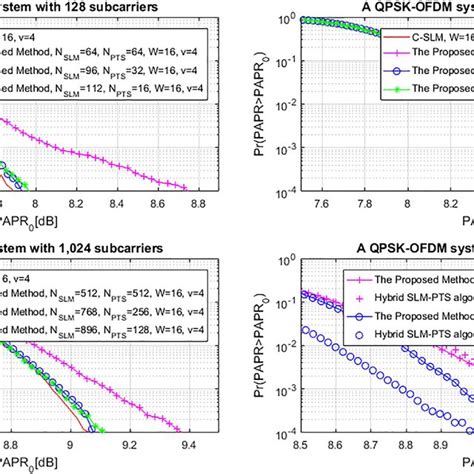Optimal macro ratios for sustained energy & peak male performance?

Introduction: Fueling Peak Male Performance
For men striving for peak physical and mental performance, sustained energy, and optimal health, understanding macronutrient ratios is not just beneficial—it’s foundational. Macronutrients—carbohydrates, proteins, and fats—are the core components of our diet, each playing distinct yet interconnected roles in powering the body, building and repairing tissues, and regulating vital functions.
While general nutritional guidelines exist, the “optimal” ratio can be highly individual, influenced by factors such as activity level, fitness goals, metabolism, and even age. This article delves into the specific roles of each macronutrient and offers guidance on how to calibrate your intake for superior energy, enhanced performance, and robust male health.

The Role of Carbohydrates: Sustained Energy & Recovery
Carbohydrates are the body’s primary and most efficient source of energy, especially crucial for high-intensity exercise and brain function. They are broken down into glucose, which fuels muscles and the central nervous system. For sustained energy, focus on complex carbohydrates like whole grains, fruits, vegetables, and legumes, which provide a steady release of glucose and prevent energy crashes.
Adequate carbohydrate intake is vital for replenishing muscle glycogen stores post-workout, aiding in recovery, and ensuring you’re ready for your next training session. Without sufficient carbs, your body may resort to breaking down protein for energy, hindering muscle repair and growth. For active men, a common starting point for carbohydrate intake might range from 40-55% of total daily calories, adjusted based on training volume and intensity.
Protein Power: Muscle Growth, Repair & Satiety
Protein is the cornerstone of male performance, essential for muscle growth, repair, and maintenance. It’s composed of amino acids, the building blocks for every cell, tissue, and organ in your body. Beyond muscle, protein plays a critical role in enzyme production, hormone synthesis, and immune function, all of which are vital for peak performance and overall health.
For men engaged in regular resistance training or strenuous physical activity, protein requirements are higher. A recommended intake generally falls between 1.6 to 2.2 grams per kilogram of body weight (0.7 to 1.0 gram per pound). Distributing protein intake evenly throughout the day, across meals and snacks, can maximize muscle protein synthesis and promote satiety, helping with weight management. Lean meats, poultry, fish, eggs, dairy, and plant-based sources like lentils and beans are excellent options.

Healthy Fats: Hormonal Balance & Essential Functions
Fats have long been misunderstood, but they are absolutely critical for optimal male performance, particularly for hormonal health. Healthy fats are essential for the production of testosterone and other steroid hormones, which play a significant role in muscle mass, strength, energy levels, and libido. They also aid in the absorption of fat-soluble vitamins (A, D, E, K) and provide concentrated energy.
Focus on incorporating sources of monounsaturated fats (avocados, olive oil, nuts), polyunsaturated fats (fatty fish, flaxseeds, walnuts), and a moderate amount of saturated fats from quality sources. Trans fats, often found in processed foods, should be avoided entirely. For many men, fat intake might comprise 20-35% of total daily calories, with particular attention to healthy unsaturated sources.

Finding Your Optimal Ratio: Individualization is Key
There is no universal “perfect” macro ratio for all men. Your ideal balance will depend heavily on your specific goals (e.g., muscle gain, fat loss, endurance sports, general health), activity level, current body composition, and metabolic response. Here are some common starting points:
- Balanced Performance (General Active Men): Often around 40% Carbs, 30% Protein, 30% Fat. This provides a good mix for sustained energy and recovery.
- Muscle Gain/Bulking: May lean towards higher carbs (45-55%) to fuel intense workouts and recovery, with adequate protein (25-35%) and moderate fat (20-30%).
- Fat Loss/Cutting: Often involves moderate carbs (30-40%), higher protein (35-45%) to preserve muscle mass, and moderate fats (25-35%) for satiety and hormonal health.
- Keto/Low-Carb: Significantly lower carbs (5-10%), very high fat (60-75%), and moderate protein (20-30%). This is a specific dietary approach not for everyone, requiring careful consideration.
The best approach is to start with a balanced ratio based on your goals, track your intake and body’s response (energy levels, performance, body composition changes), and adjust gradually. Listen to your body and consult with a nutritionist or dietitian for personalized guidance.

Beyond Ratios: Quality, Timing, and Hydration
While ratios are important, the quality of your macronutrient sources is paramount. Prioritize whole, unprocessed foods over refined and highly processed options. Nutrient density ensures you’re getting a broad spectrum of vitamins, minerals, and fiber alongside your macros. Additionally, timing your macronutrient intake, especially around workouts, can significantly impact performance and recovery.
Don’t forget hydration! Water is often overlooked but is fundamental for every bodily function, including nutrient transport, temperature regulation, and joint lubrication. Optimal hydration supports energy levels and overall performance directly.
Conclusion: Fuel Your Potential
Achieving sustained energy and peak male performance isn’t about following a rigid, one-size-fits-all diet. It’s about intelligently customizing your macronutrient ratios to your unique needs, goals, and lifestyle. By understanding the critical roles of carbohydrates, proteins, and fats, and focusing on quality whole foods, you empower your body to perform at its best, recover efficiently, and support long-term health and vitality. Experiment, track, and adjust to unlock your full potential.









